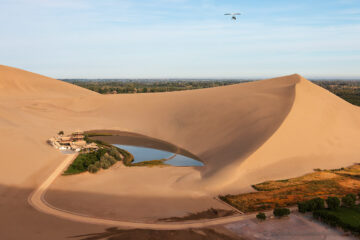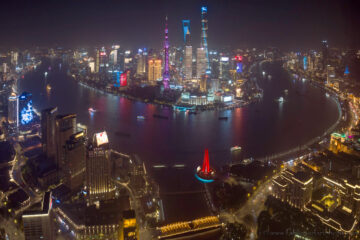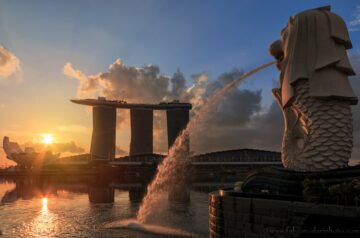Yiliang (宜良县) is a small county in Yunnan famous for the tea, the roast duck and the hospitality of its people. Find out the top things to do and to see.
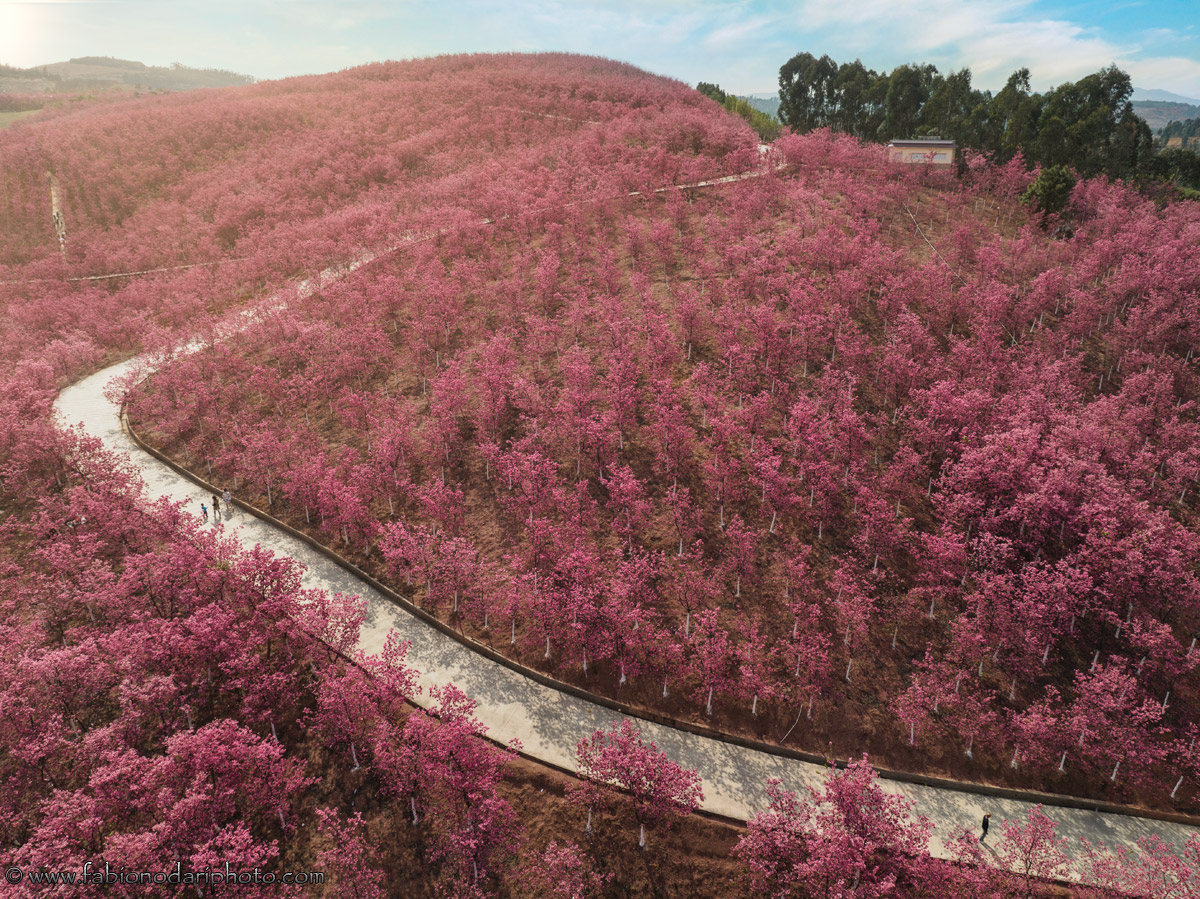
Yiliang is a small county in Yunnan (small by Chinese standards) with only 430.000 inhabitants. If you Google “Yiliang”, you’ll see little info about this place.
So, how did I attend a festival to celebrate the tea growing in the county’s mountains? A Chinese friend from Yiliang invited me to spend the weekend in the city. Visiting places off the beaten path is always interesting, especially in China, where the welcome you receive in remote areas is difficult to describe, so I was happy to accept the invitation.
At the end of the trip, I can say that Yiliang surprised me: even if it doesn’t have any nature reserve or protected area, the people of this county have done a lot to promote their territory, which is no small thing in China. You can find an example of this if you visit some of the colourful rice fields in the county. But what struck me most was the hospitality of the people I met during these two days. Although foreigners are generally always treated well in China, nowhere else in China, have I had such a welcome.
I can only say that the more I travel, the more I realize how much I have to learn.
A short introduction about Yiliang
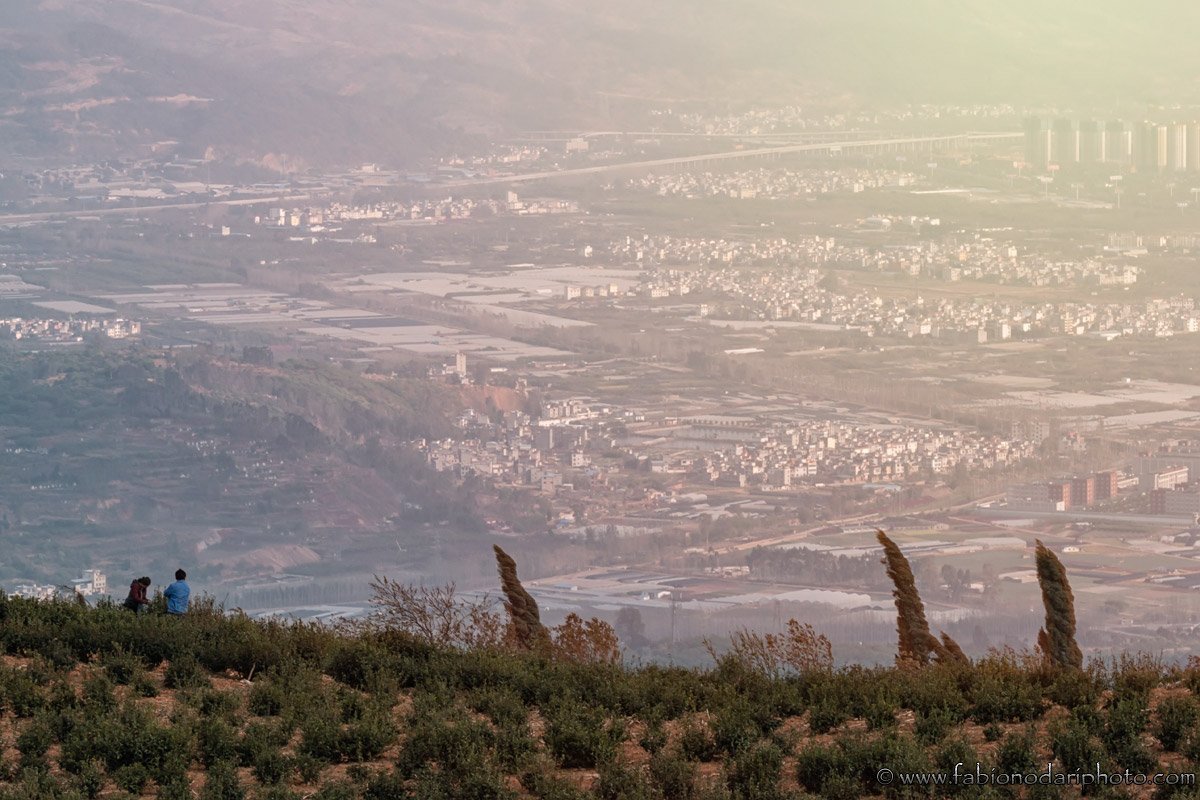
Yiliang (宜良县) is a county that belongs to Kunming (here is my travel guide), the capital of Yunnan (here is my travel guide to Yunnan). It lays at an elevation of about 1.600 meters above sea level, and it’s easily accessible from Kunming as there are daily buses that depart every 15 minutes from the east bus station (昆明东部汽车客运站). The ticket costs just 25 RMB one way.
The city is still quite small, but it’s developing rapidly. One of the county’s main attractions is Jiuxiang caves (九乡), which I talked about in another article. Besides the caves, the county is famous for two things: the tea on the Baohong mountain and the roast duck. Most people who live in Yiliang belong to the Han ethnic group (we refer to them as Chinese people), but there is also a large population of Yi and Hui ethnic groups.
There’s not much to see in town. The only exception is the complex of Buddhist and Taoist temples called Yanquan (岩泉寺), built on the side of a mountain. There are many legends about this place, including that of a monk who discovered the secret of immortality.
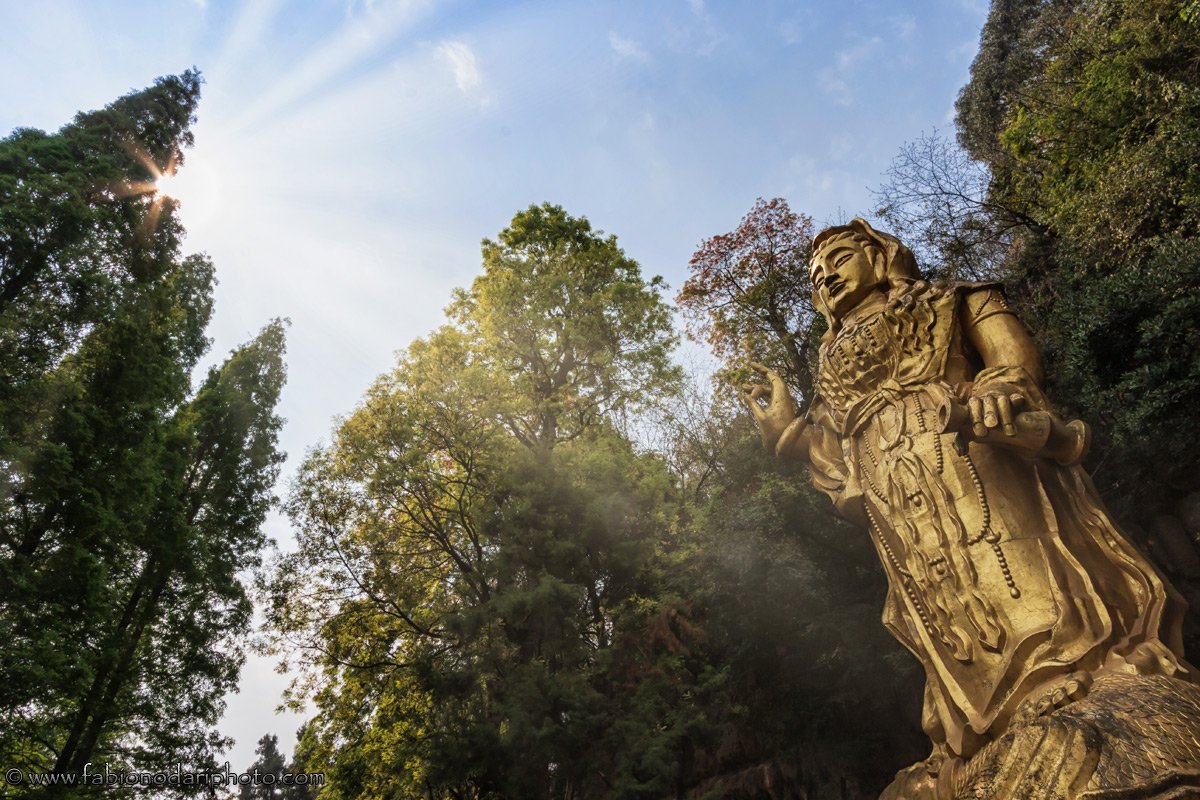
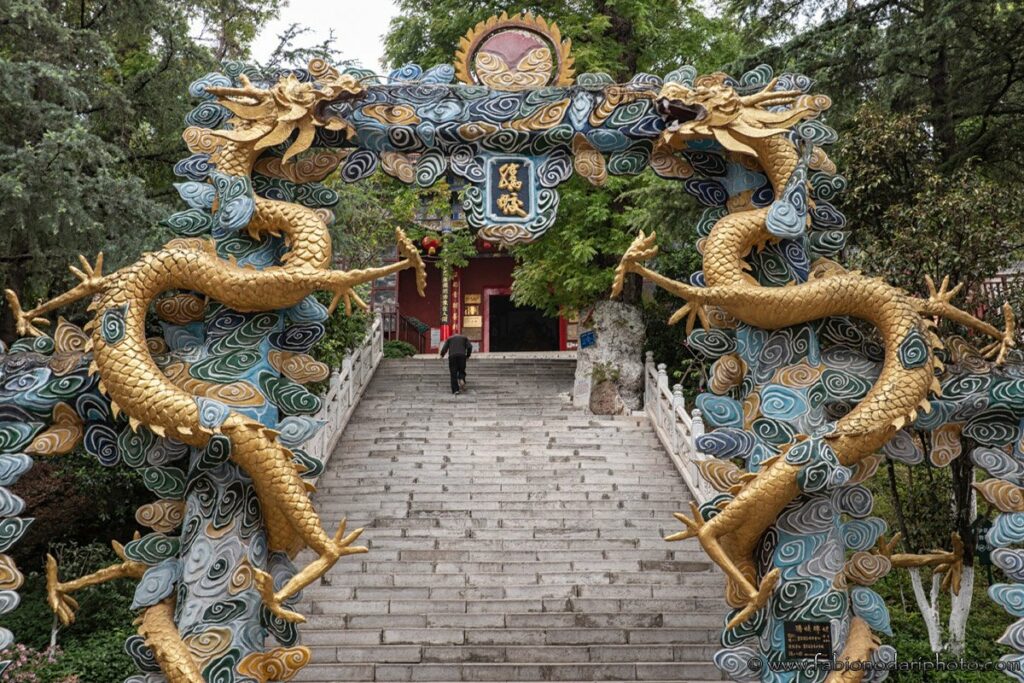
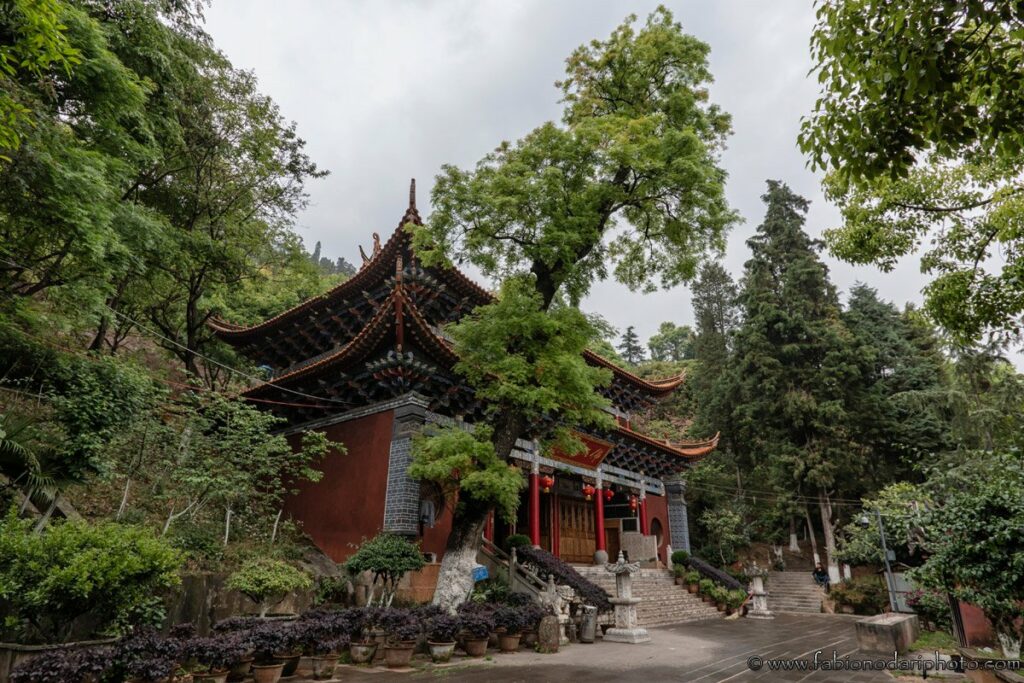
Legends aside, it’s a very interesting place to visit and is not very crowded. Being built on the side of a mountain is surrounded by trees and it’s very peaceful.
The roast duck of Yiliang
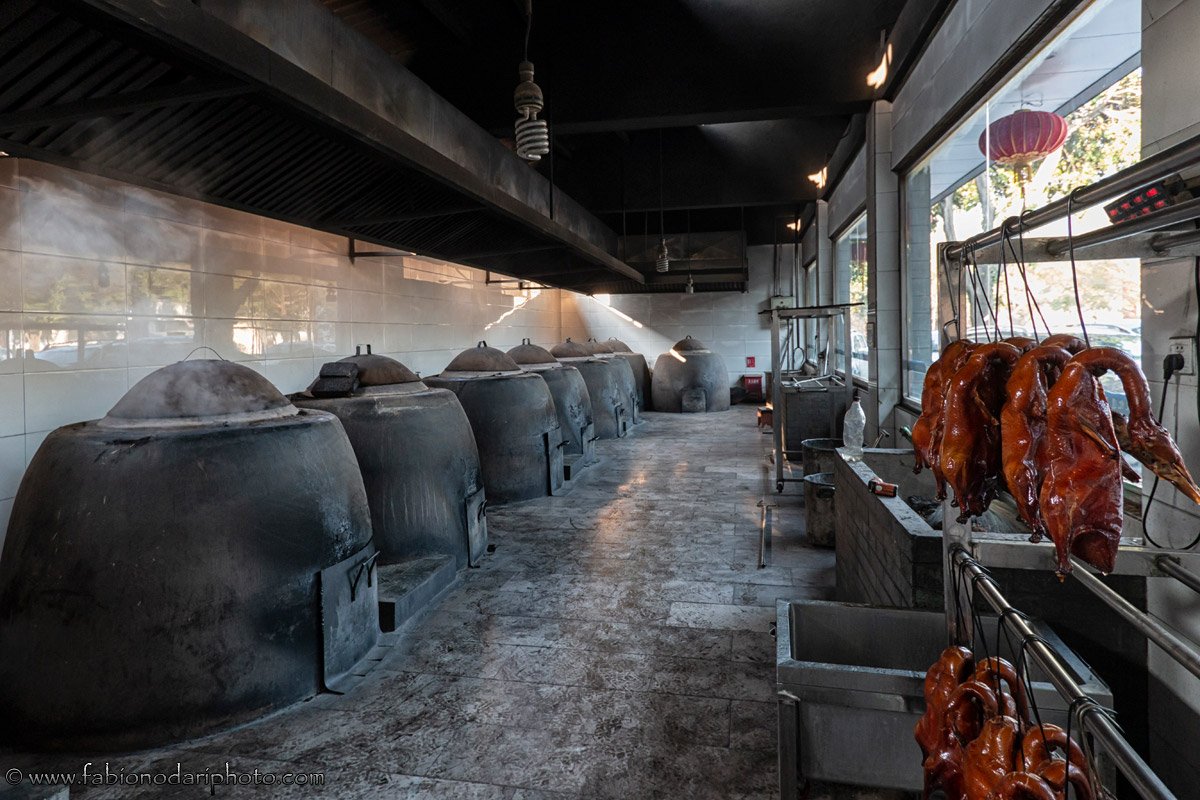
Roast duck is one of the most famous dishes in Beijing, and traces of this recipe date all the way back to the year 1330 AD. Since the mid-1900s, it has become one of China’s most iconic dishes.
Yiliang is famous for a slightly different version of the original recipe:
- the oven is made with mud bricks
- pine branches and needles are used instead of the Gaoliang hardwood to heat the oven
- honey is used instead of malt syrup for the glaze
- in addition, the ducks used in the Yiliang version of the recipe are semi-wild and, therefore, a bit tastier than the Beijing ducks.
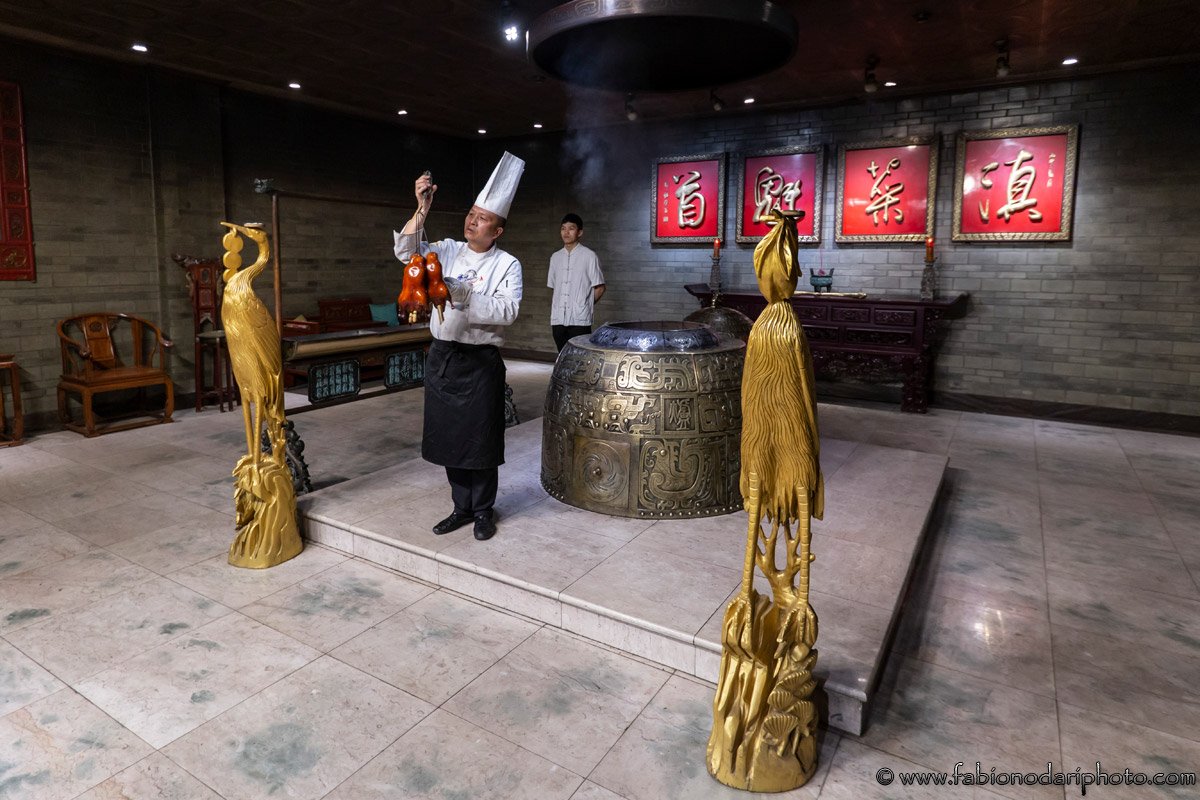
I prefer the version of Yiliang. If you want to try it, the best place is the restaurant Xuecheng (学成饭店). Every day at lunch and dinner, there is a special ceremony where 12 ducks are cooked in a special oven.
The bricks are made with mud taken from different places in the world. The oven is made with a single block of bronze and was built in Xian.
The Baohong tea
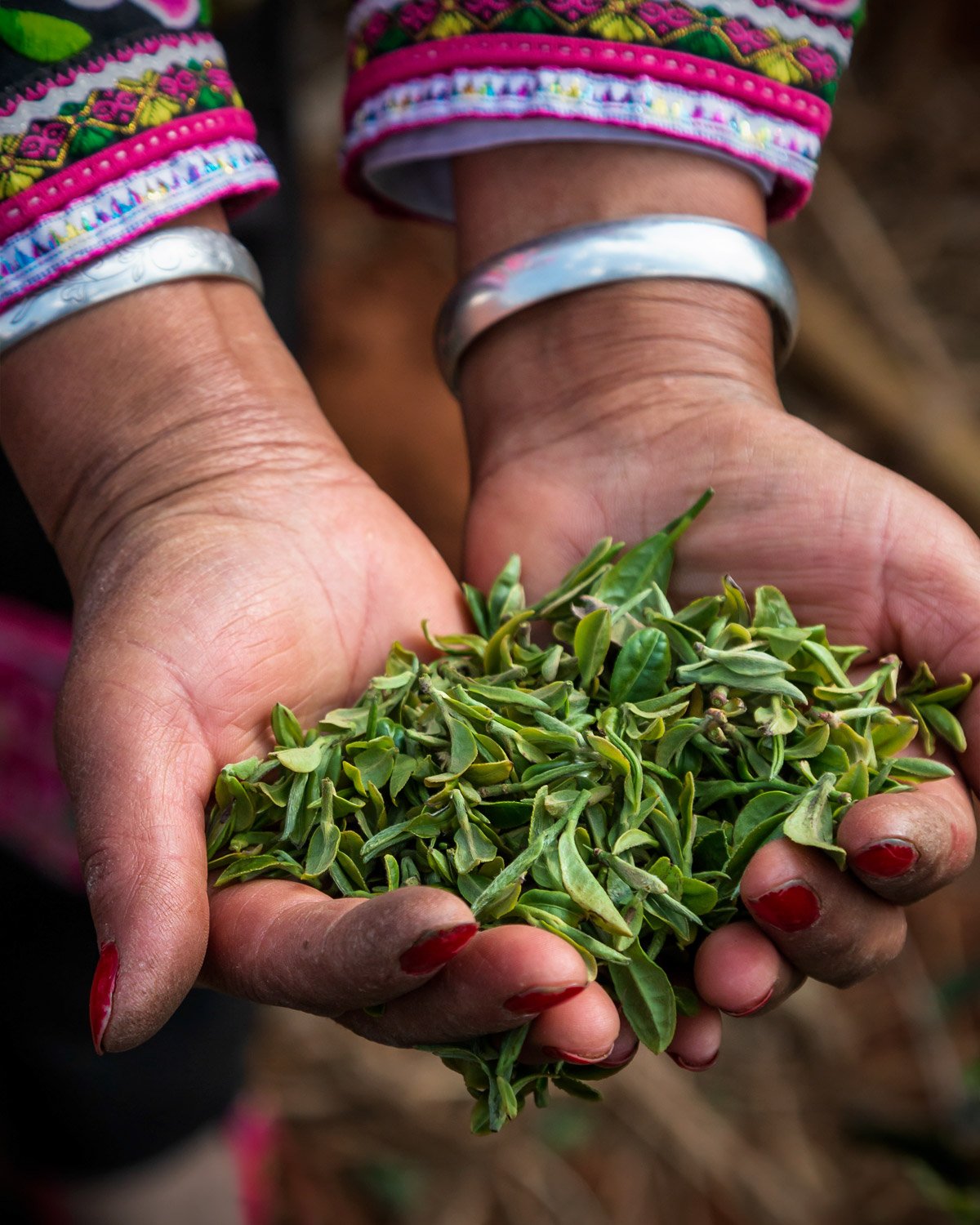
Baohong means “vast treasure” and is the name of the mountain this particular tea grows. It was first introduced to Yunnan over 1000 years ago from the Fujian Province. The main characteristic of this tea is that only the small leaves are harvested; therefore, the taste is less bitter than that of other tea varieties.
Unfortunately, it grows exclusively on one mountain, so the production is limited. Moreover, according to the locals, unlike other types of tea, such as Pu’er, it should be consumed fresh, not later than June or before the Dragon Boat Festival. Considering that it is harvested in March, it is very difficult to find Baohong tea at other times of the year.
I was invited to Yiliang to attend an event organized by the local government to celebrate the beginning of the tea harvest season. The families living in the Baohong mountain belong mainly to the Yi minority (if you want to know more about the Yi ethnicity, you can read this article on Wikipedia) and were involved in organizing the festival.
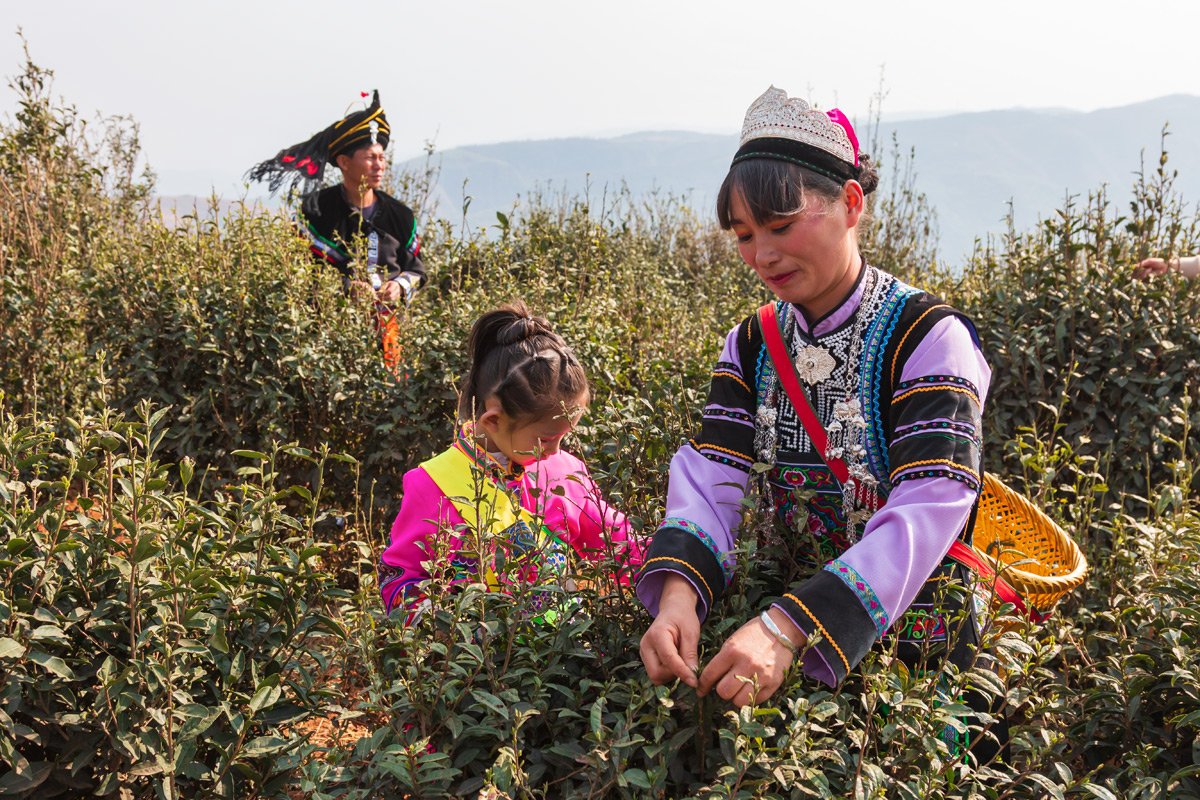
Dressed in their traditional costumes, the White Yi and Black Yi started the celebration with traditional songs and dances, followed by a ceremony to ingratiate their gods (the Yi are mainly animists).
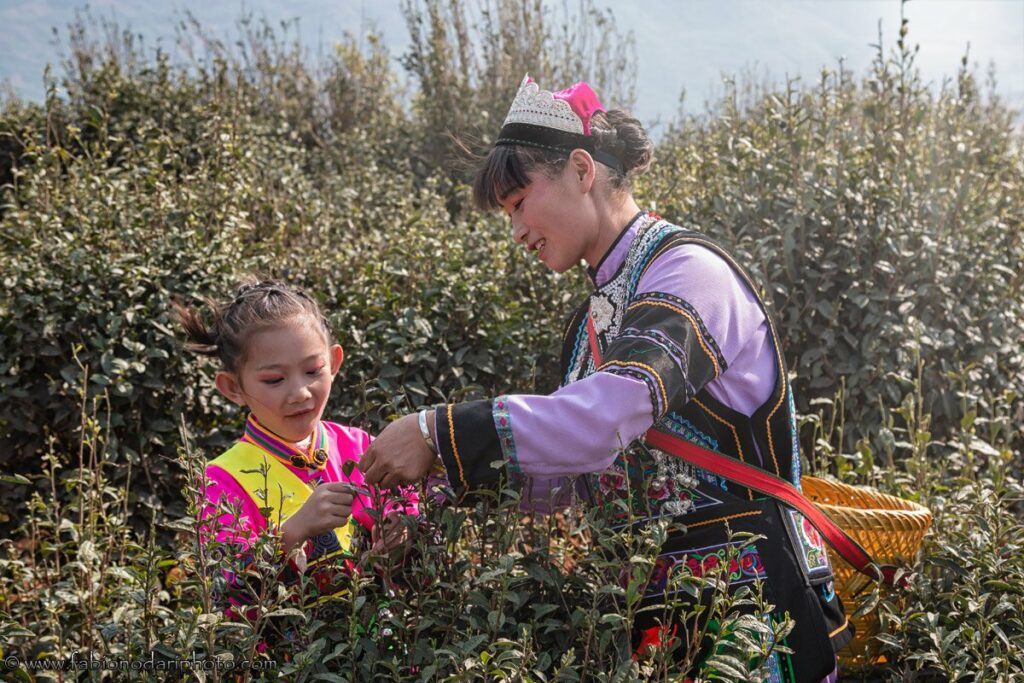
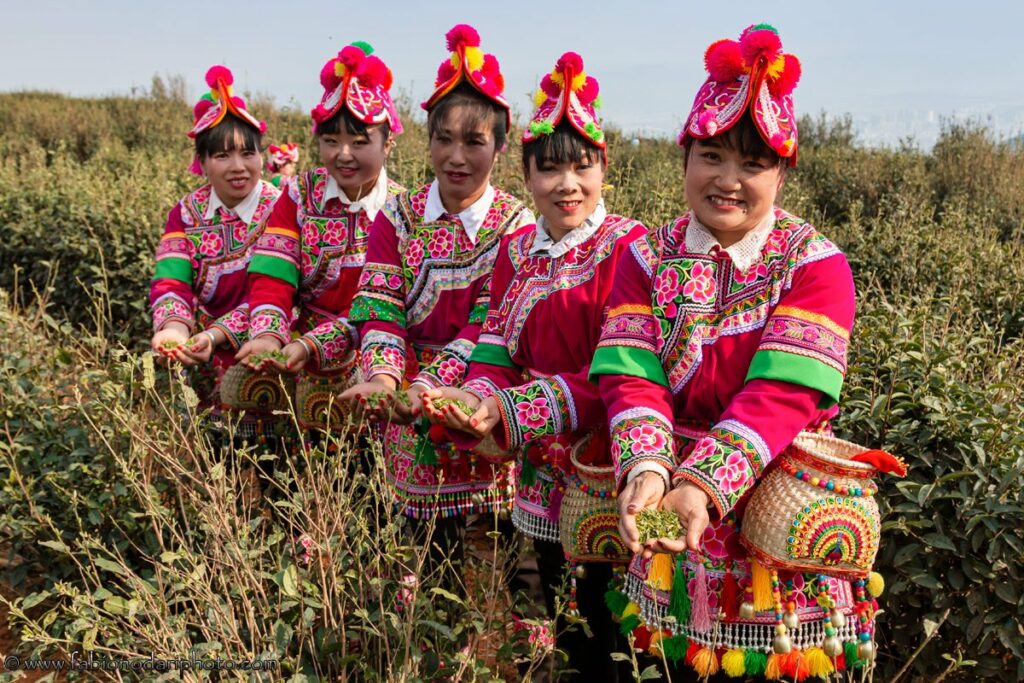
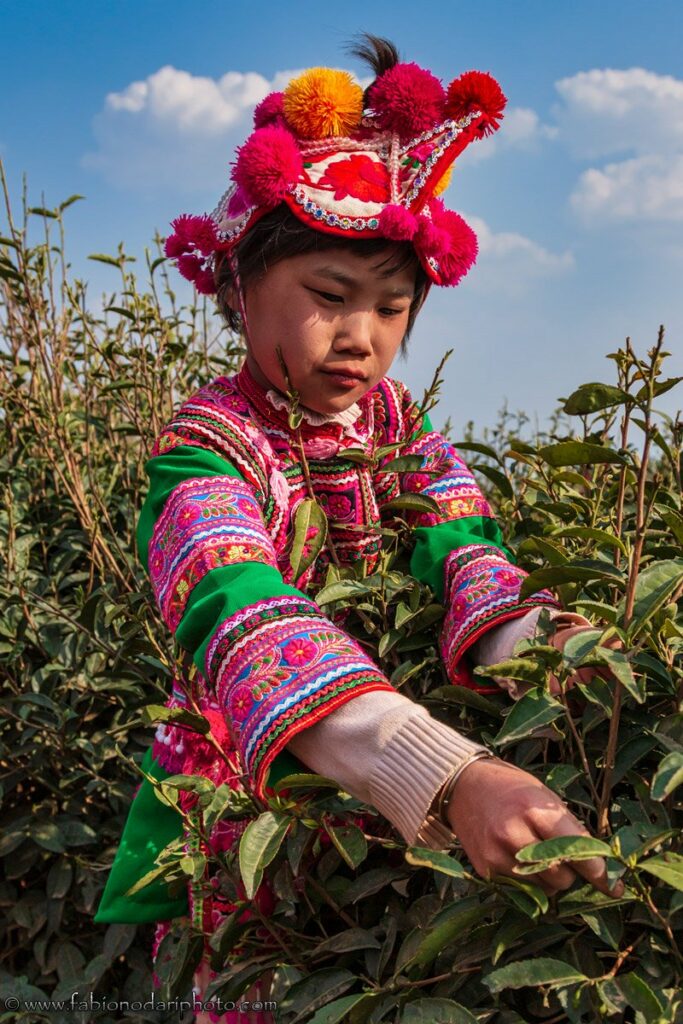
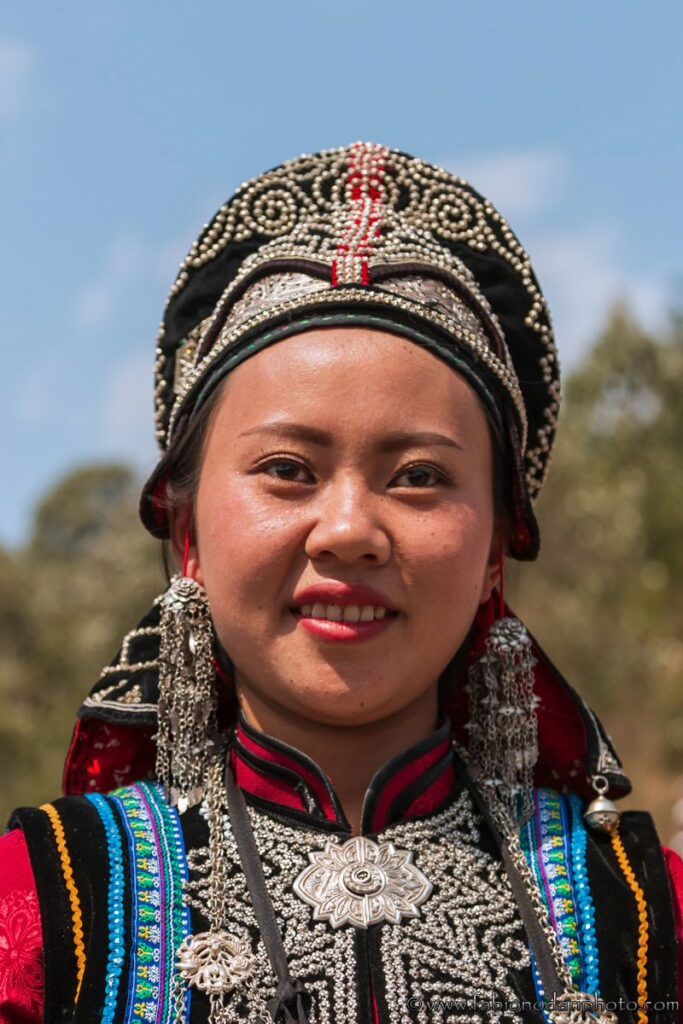
Near the plantations, some small workshops are where the tea is processed and packaged. The price of the tea varies from year to year, but as you can imagine, it is one of the most expensive types of tea in Yunnan.
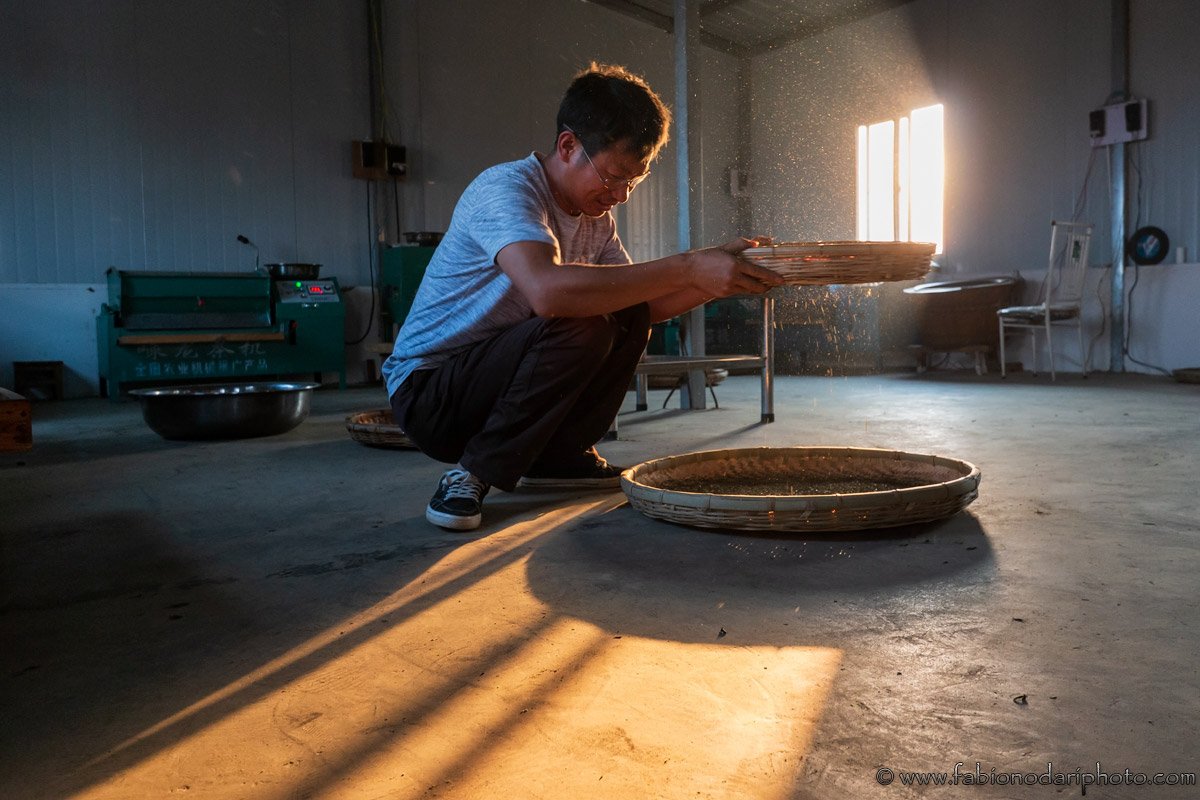
And this was pretty much it. Yiliang is not the most interesting place in Yunnan, but if you have some spare time while staying in Kunming, you can consider visiting this nice county.
Useful info to visit Yiliang
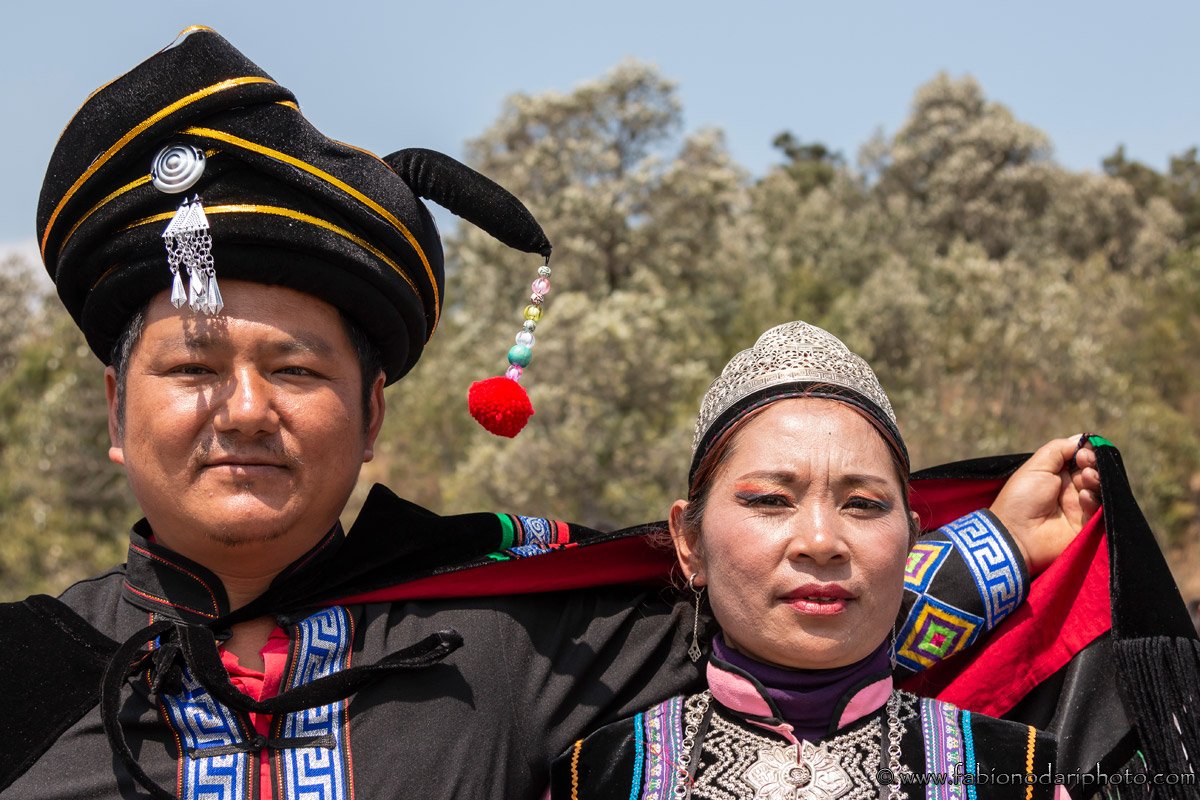
- The easiest way to get to Yiliang is from Kunming by bus from the east bus station (昆明东部汽车客运站). There is one every 15 minutes. Here, you can find some flights to Kunming.
- Not all hotels in China can accommodate foreigners, so you should book before you leave using Booking.com.
- Before leaving for China, get a VPN if you want to use the internet; otherwise, you cannot access sites like Gmail, Google, Facebook or apps like WhatsApp or Messenger.
- In this article, you will find my China travel guide.
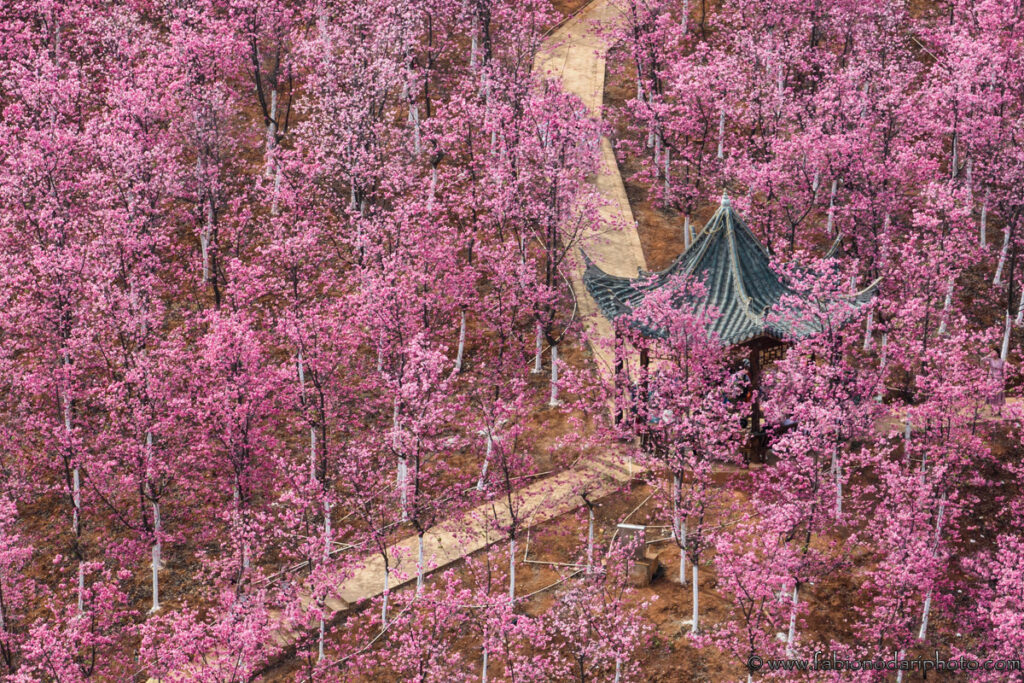
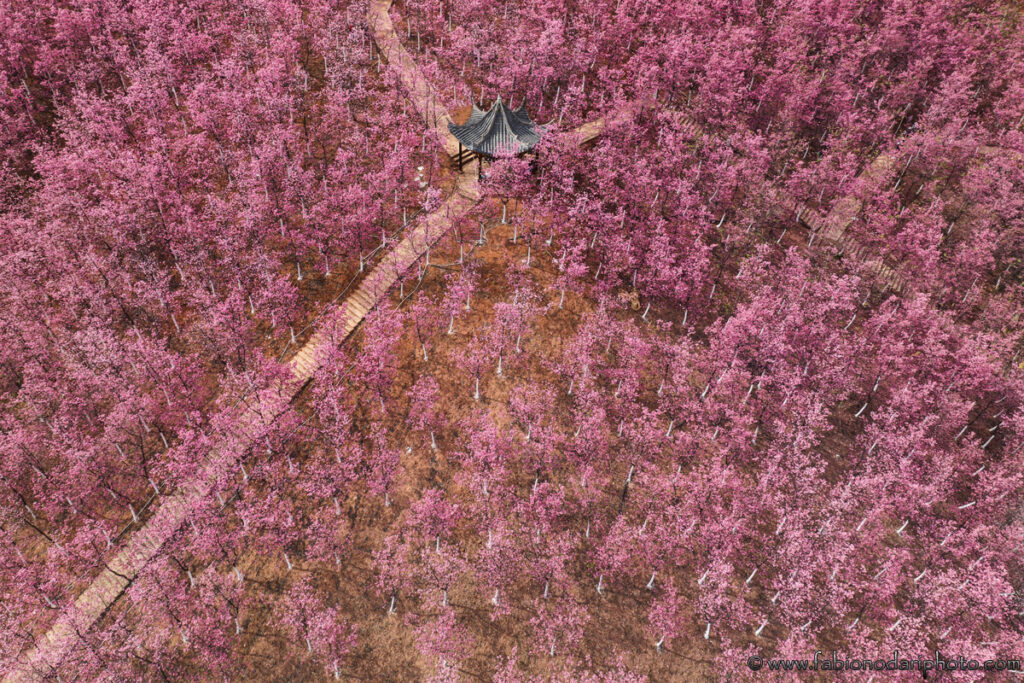
You can find my reportage about the “Lotus Feet” on this page. Here is my travel guide to Xishuangbanna, in southern Yunnan. Here is an article about another nice place close to Kunming and Yiliang: Mile, and here are some info about Fuxian Lake near Kunming.
